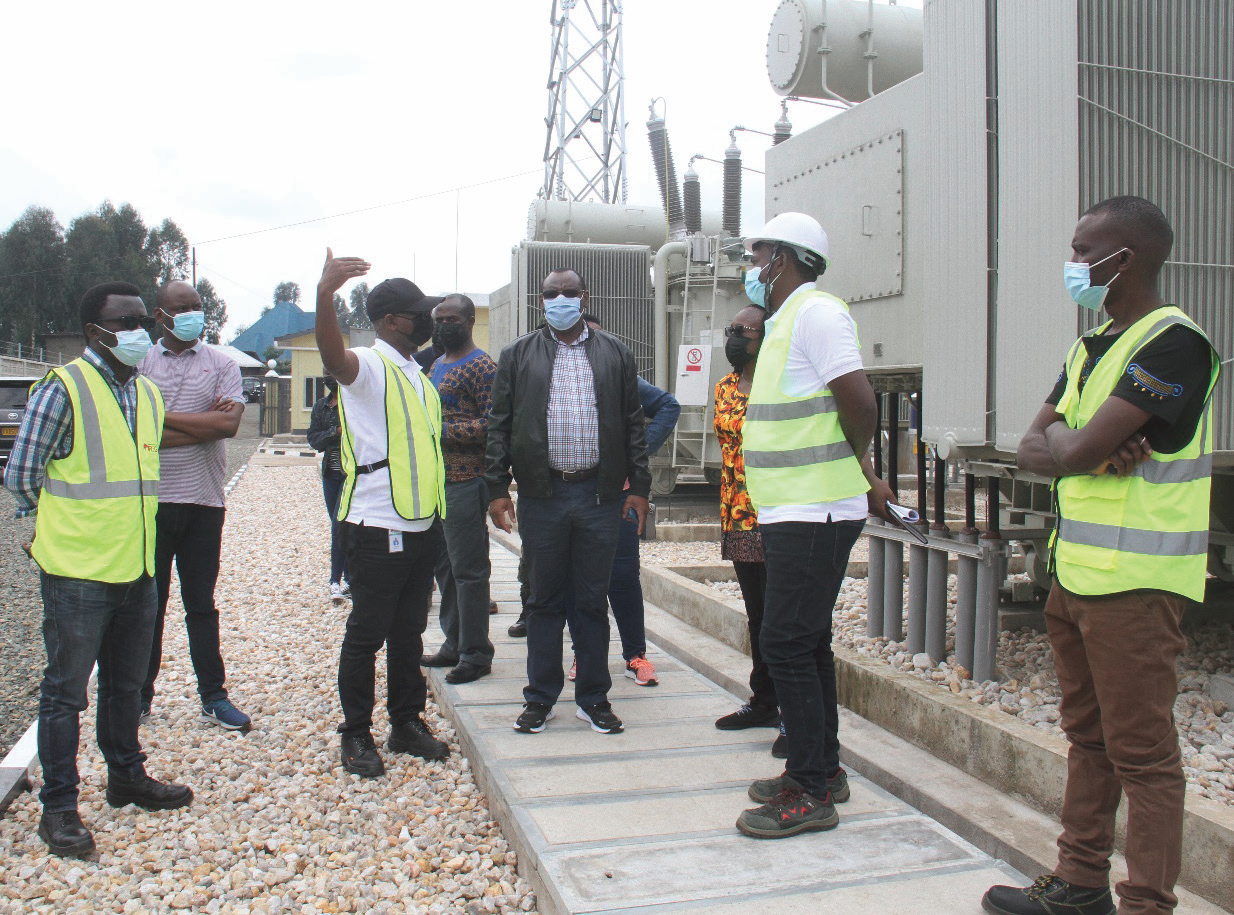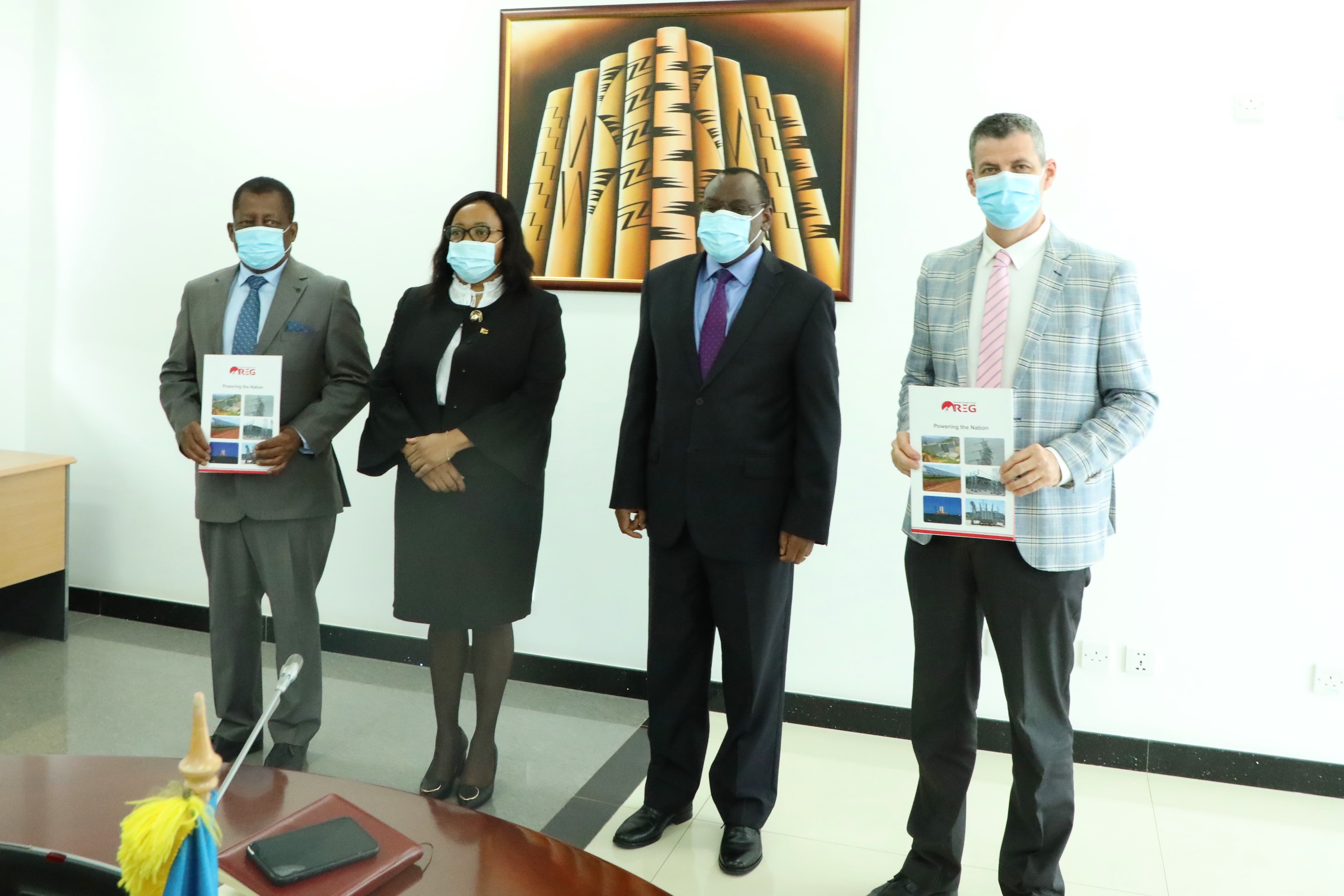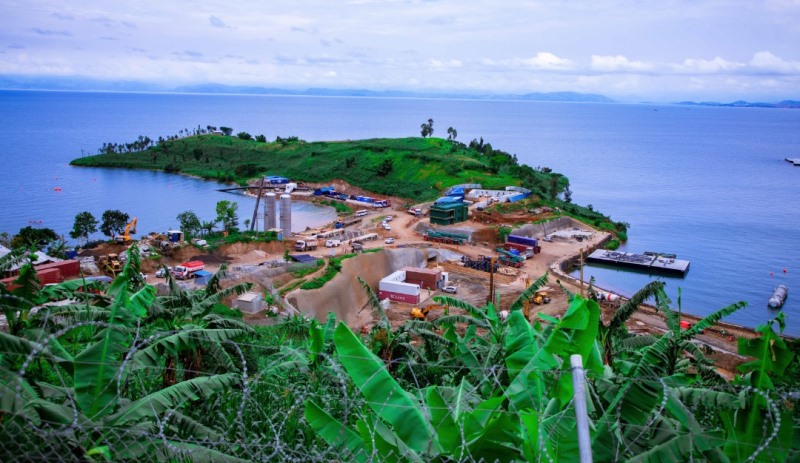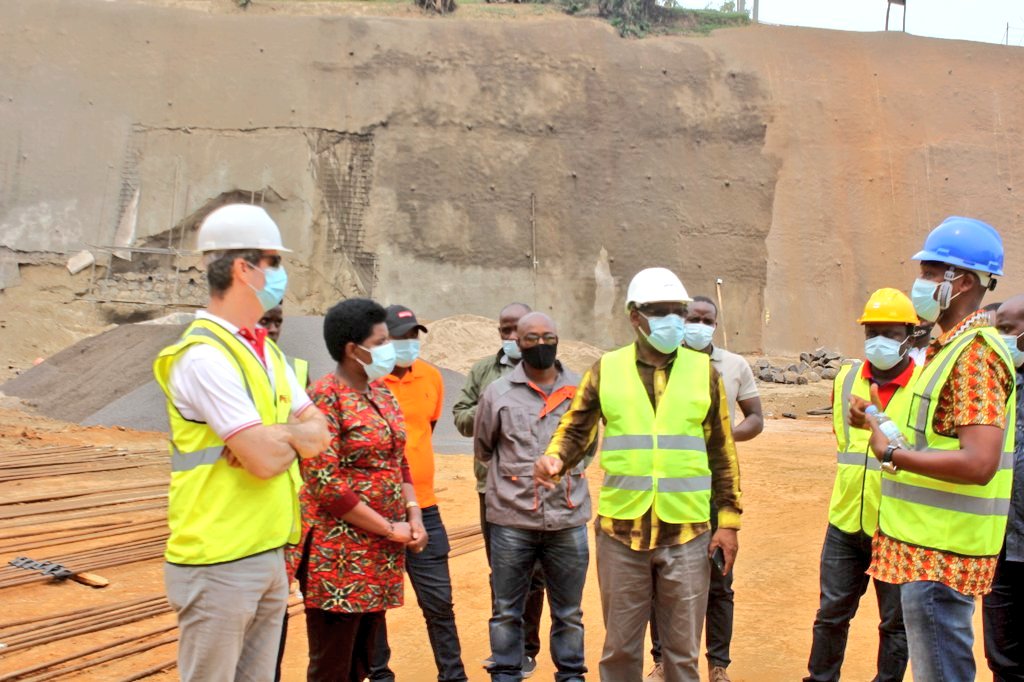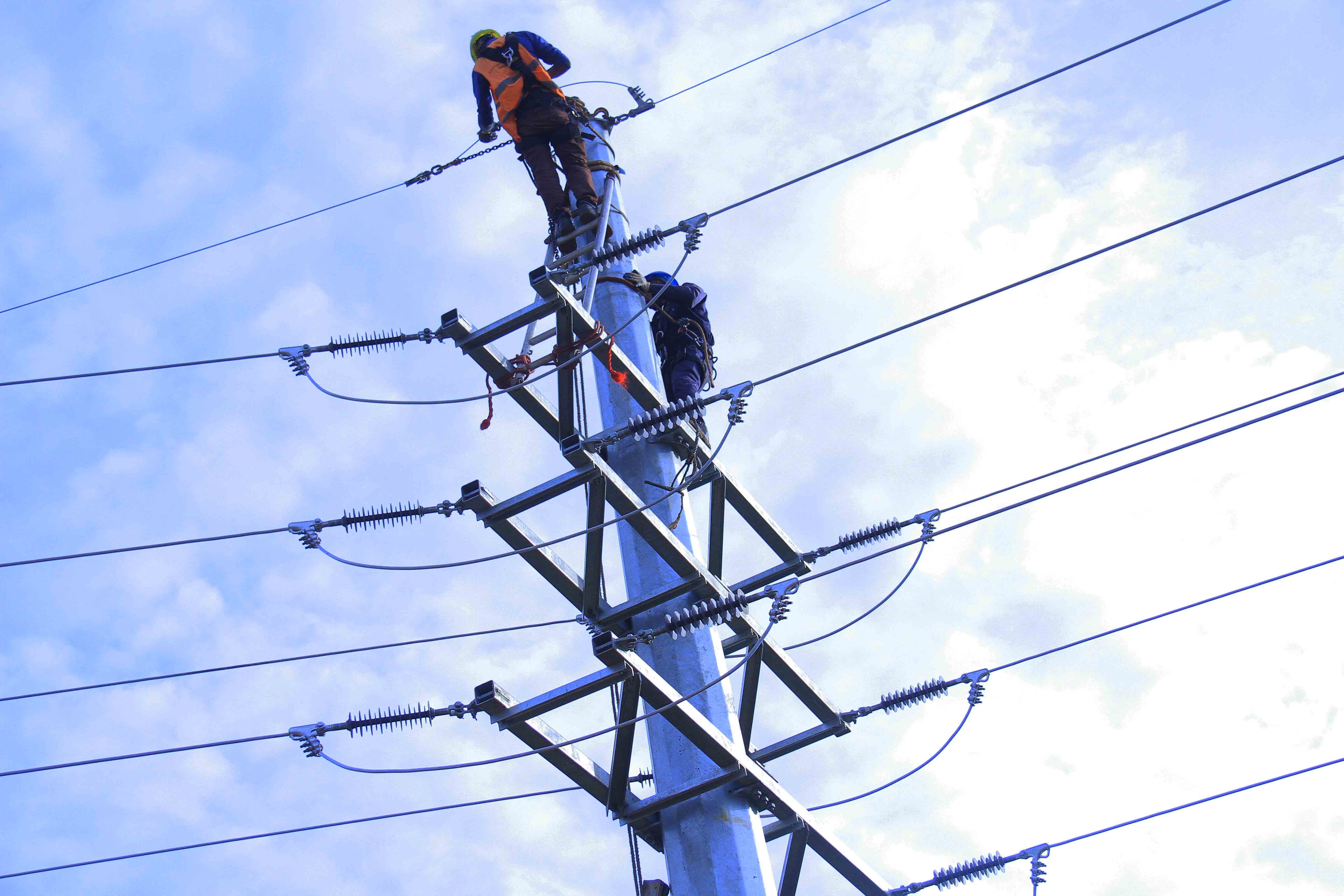News & Events Details
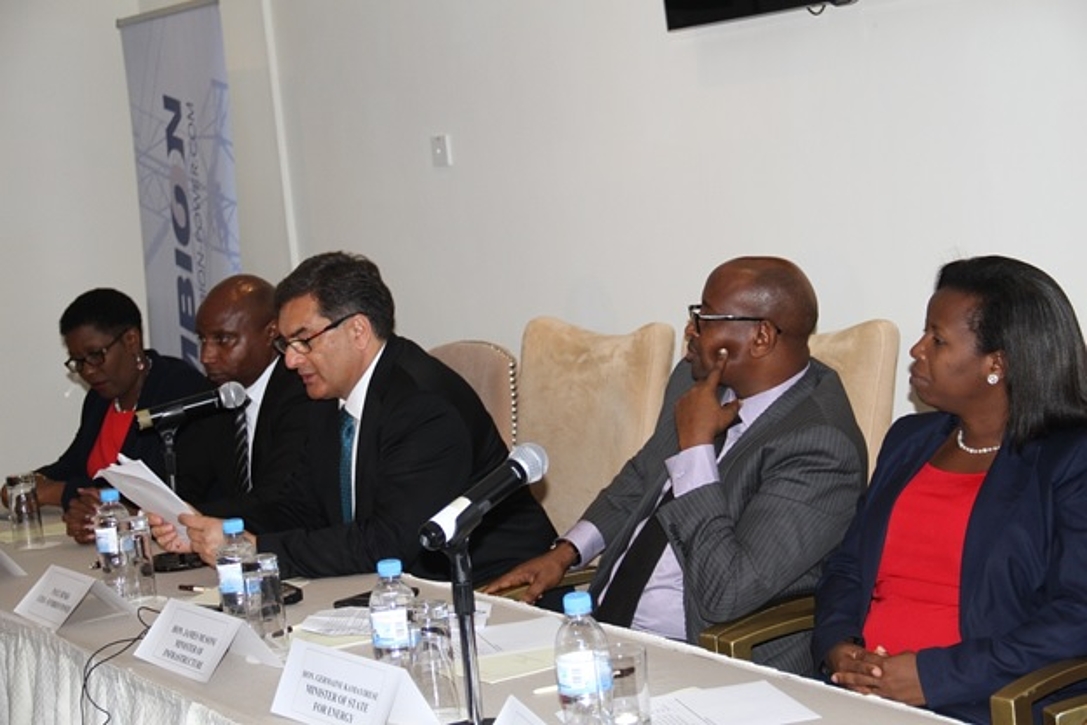
May
REG and Symbion Power signs a power purchase agreement
The 25-year power purchase agreement for the 55-megawatt Methane Gas Project in Lake Kivu, Western Province, was signed on Tuesday in Kigali between Symbion Power chief executive Paul Hinks, REG chief executive Jean-Bosco Mugiraneza, and the Minister for Infrastructure, James Musoni
The recently-raised power tariffs might not stay long that way as efforts to reverse the trend gained impetus this week with a new power purchase agreement signed between American energy firm, Symbion Power, and Rwanda Energy Group (REG).
The agreement, according to Musoni, is expected to help reduce power tariff and improve the country’s quality of energy.
At only 9.8 cents per unit, Minister Musoni is confident the rate is affordable when compared to about 18 cents many industrialists pay for every unit of power they consume.
“The deal means more affordable and stable power which will translate into faster economic development,” Musoni said. He urged both parties to ensure a faster implementation of what was agreed on.
The deal comes three months after government increased power tariffs by 35 per cent for low voltage users, including residential and non-residential consumers (to Rwf182 per kilowatt, from Rwf134 per kilowatt). However, charges for industrial power consumers were not changed and remained at Rwf126 per kilowatt.
More about the agreement
According to the agreement, the first barge is expected to provide at least 14 megawatts of electricity 15 months after the project reaches financial close. Then full 50 megawatts will be commissioned within 36 months after reaching financial close.
Lake Kivu is a reserve for an estimated 55 billion cubic meters of methane gas deposits. The total power generation potential of this resource has been conservatively estimated at more than 500 megawatts over 40 years.
Under the purchase agreement, Symbion Power will begin implementation activities, including detailed design, procurement and permitting for the project located on the shores of Lake Kivu near Rubavu District.
The power project also reduces the risk of gases trapped in the deep layers of the lake rising to the surface and endangering the surrounding communities.
Symbion Power’s Hinks said the deal could help save government billions of cash spent on importing heavy fuels.
“Unlocking Lake Kivu’s energy potential is a game changer for Rwanda; our team is working hard to turn this resource into affordable, reliable power for Rwandan people,” Hinks said.
“We work with governments across sub-Saharan Africa to replace expensive, imported fuel with indigenous fuel sources to produce electricity and are honoured to have the opportunity to do that here in Rwanda as a part of our commitment to President Obama’s Power Africa initiative.”
The commitment
Symbion Power will extract methane gas from the depths of the lake in a safe and controlled manner and process the gas into electricity onshore, he added.
The project underscores Symbion’s commitment to investing in sub-Saharan Africa’s power sector through close cooperation and partnership with host country governments.
“We are working closely with the government of Rwanda and its regulatory agencies to ensure that the Lake Kivu project delivers affordable energy in an efficient and environmentally responsible manner,” he said.
Mugiraneza said the power project is a key part of Rwanda’s plan to increase generation capacity.
“We have confidence that the technology is working on a large scale and will help boost our plan to generate more power,” Mugiraneza said.
Base load power, generated from the lake resource by Symbion Power, is expected to help boost Rwanda’s electricity supply and lower the overall cost of electricity.
In addition to providing Rwandans with more electricity, the project will also help alleviate the risk of an uncontrolled release of gas from the lake.
Francis Gatare, the chief executive officer Rwanda Development Board, said investing in energy has a high multiplier effect on other sectors of the economy.
“Investing in cost effective energy is crucial for our competitiveness; it will also help attract more investors into the country and spark economic development,” Gatare said.
Rwanda’s power generation capacity has increased by over 86 megawatts, in the last 18 months alone and currently stands at more than 185 megawatts.
The plan is to increase this capacity to at least 563 megawatts by 2018.
Categories
Archives
- April 2024
- March 2024
- August 2023
- July 2023
- June 2023
- May 2023
- April 2023
- February 2023
- December 2022
- August 2022
- July 2022
- June 2022
- May 2022
- April 2022
- March 2022
- February 2022
- January 2022
- December 2021
- November 2021
- September 2021
- August 2021
- July 2021
- June 2021
- May 2021
- April 2021
- February 2021
- January 2021
- December 2020
- November 2020
- October 2020
- September 2020
- August 2020
- July 2020
- June 2020
- April 2020
- March 2020
- February 2020
- January 2020
- December 2019
- November 2019
- October 2019
- September 2019
- August 2019
- July 2019
- June 2019
- May 2019
- April 2019
- March 2019
- February 2019
- January 2019
- December 2018
- November 2018
- October 2018
- September 2018
- July 2018
- June 2018
- April 2018
- March 2018
- February 2018
- January 2018
- December 2017
- November 2017
- August 2017
- July 2017
- June 2017
- March 2017
- February 2017
- January 2017
- December 2016
- November 2016
- August 2016
- July 2016
- June 2016
- April 2016
- February 2016
- May 2015
- April 2015
- March 2015
- January 2015
- December 2014
- August 2014
- July 2014
Related News
Our Partners
Please fill in the form or Call us on our Toll free number 2727
